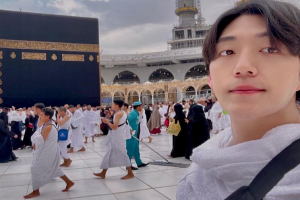According to rahyafte (the missionaries and converts website): As I navigate through my journey of self discovery, I have read books about psychology written by those whom society hails as the greatest of minds. My library is full of books from Greek mythology to modern psychology, the majority of which I haven’t read past the first couple of chapters. The material, however, is often too vague or abstract , and almost always unsatisfactory. Recently through the guidance of Allah, I have discovered more about the inner workings of the human mind and spirit in a different book – the verses of the Qur’an.

Rest assured dear brothers and sisters in Islam that Allah will never leave us alone, bewildered and unguided trying to figure out the path that would lead us to His grace and mercy. And that is why He sent the prophets and the messengers with messages of hope and guidance to lead humanity to the straight path. The Prophet Mohammad (peace be upon him) was sent to us with the final message intact and complete to help us understand ourselves; by reigning in our desires, we can become logical, spiritual people on the path to paradise insha’Allah.
The Qur’an is rich with examples of how Allah gives us a window into our own minds. He describes to us our nature and gives us tools and examples to improve the goodness that lies within it. One prime example is how Allah in Surah Al-Maarij gives us a glimpse into our nature as humans. He says:
“Indeed, mankind was created anxious…” (70:19)
The word هَلُوعًا comes from the noun هَلُع which means excessiveness and being extreme. Allah explains to us further this state of the human psyche in the two ayahs that follow where man’s reaction to either good or bad is extreme on either end:
“When evil touches him, impatient, and when good touches him, withholding [of it]…” (70:20-21)
But neither one of those conditions is consistent with how the Prophet (pbuh) describes a mu’min when he says:
“How wonderful is the case of a believer; there is good for him in everything and this applies only to a believer. If prosperity attends him, he expresses gratitude to Allah and that is good for him; and if adversity befalls him, he endures it patiently and that is good for him.” (Muslim)
So how are we to be thankful and patient while we, as Allah tells us, have been created reactionary and impatient? Well, as Allah has created us with this nature, He has also given us the tools to control and direct that nature towards that which pleases Him. And Allah answers this question for us in the very following ayah:
“Indeed, mankind was created anxious: when evil touches him, impatient, and when good touches him, withholding [of it], except…” (70:19-21)
إِلَّا means except, which implies the verses to follow are excluded from what has already been described. To continue:
“Except the observers of prayer – those who are constant in their prayer.” (70:22)
Except those who are devoted to prayer. Those who do not let anything deter them, stall them, or prevent them from performing their prayers. They are the ones that Allah has described in Surat An-Nur:
“…men whom neither commerce nor sale distracts from the remembrance of Allah and performance of prayer and giving of zakah (charity). They fear a Day in which the hearts and eyes will [fearfully] turn about…” (24:37)
We turn toward and meet with our Lord five times a day. We say “Allahu Akbar – God is greatest,” declaring that Allah is above all and that there is nothing that is worth more than being in His company. Prayers are a reflection of the fact that no matter what actions one performs in life, the most important is one’s relationship with Allah.
Prayer is balancing and tranquilizing. If performed properly it will have a lasting effect on the person. After finishing the prayer, the heart will be filled with remembrance of Allah. It will be fearful as well as hopeful of Allah and it will not want to move from such a comfortable position to one where it could disobey Allah. Allah describes this aspect of the prayer in Surah Al-Ankbut:
Indeed, prayer prohibits immorality and wrongdoing. (29:45)
Prayers grant us such power to strive successfully against all kinds of evils and temptations. It allows us to remain steadfast through trial and adversity, and protects us from wavering too far to either end of the middle and moderate path.
Source:virtualmosque



















